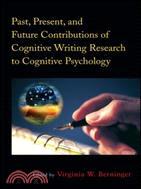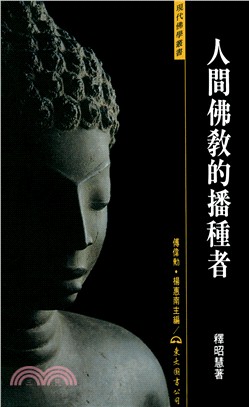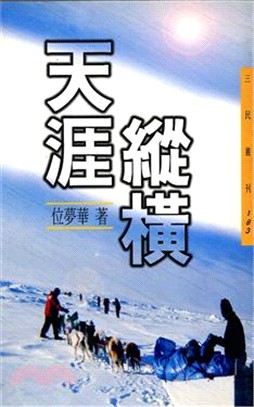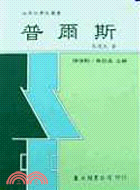Past, Present, and Future Contributions of Cognitive Writing Research to Cognitive Psychology
商品資訊
定價
:NT$ 7800 元優惠價
:90 折 7020 元
若需訂購本書,請電洽客服 02-25006600[分機130、131]。
相關商品
商品簡介
作者簡介
目次
商品簡介
This volume tells the story of research on the cognitive processes of writing—from the perspectives of the early pioneers, the contemporary contributors, and visions of the future for the field.
Writing processes yield important insights into human cognition, and is increasingly becoming a mainstream topic of investigation in cognitive psychology and cognitive neuroscience. Technological advances have made it possible to study cognitive writing processes as writing unfolds in real time. This book provides an introduction to these technologies.
The first part of the volume provides the historical context for the significance of writing research for contemporary cognitive psychology and honors the pioneers in cognitive and social-cognitive research in this field. The book then explores the rapidly expanding work on the social foundations of cognitive processes in writing and considers not only gender differences but also gender similarities in writing. The third part presents a lifespan view of writing in early and middle childhood, adolescence, higher education, and the world of work. There follows an examination of the relationships of language processes –at the word, sentence, and text levels—to the cognitive processes in writing. Part V covers representative research on the cognitive processes of writing—translation and reviewing and revision—and the working memory mechanisms that support those processes. A review of the current technologies used to study these cognitive processes on-line as they happen in real time is provided. Part VII provides an introduction to the emerging new field of the cognitive neuroscience of writing made possible by the rapidly evolving brain imaging technologies, which are interpretable in reference to paradigms in cognitive psychology of writing. The final section of the book offers visions of the future of writing research from the perspective of contemporary leaders in writing research.
Writing processes yield important insights into human cognition, and is increasingly becoming a mainstream topic of investigation in cognitive psychology and cognitive neuroscience. Technological advances have made it possible to study cognitive writing processes as writing unfolds in real time. This book provides an introduction to these technologies.
The first part of the volume provides the historical context for the significance of writing research for contemporary cognitive psychology and honors the pioneers in cognitive and social-cognitive research in this field. The book then explores the rapidly expanding work on the social foundations of cognitive processes in writing and considers not only gender differences but also gender similarities in writing. The third part presents a lifespan view of writing in early and middle childhood, adolescence, higher education, and the world of work. There follows an examination of the relationships of language processes –at the word, sentence, and text levels—to the cognitive processes in writing. Part V covers representative research on the cognitive processes of writing—translation and reviewing and revision—and the working memory mechanisms that support those processes. A review of the current technologies used to study these cognitive processes on-line as they happen in real time is provided. Part VII provides an introduction to the emerging new field of the cognitive neuroscience of writing made possible by the rapidly evolving brain imaging technologies, which are interpretable in reference to paradigms in cognitive psychology of writing. The final section of the book offers visions of the future of writing research from the perspective of contemporary leaders in writing research.
作者簡介
Virginia Wise Berninger received her Ph.D. in Psychology from Johns Hopkins in 1981 (specialization in cognitive psychology and developmental psycholinguistics). She has been on faculties at Harvard Medical School (1981-1983), Tufts New England School of Medicine (1983-1986), and the University of Washington (1986 to present), where she is currently Professor of Educational Psychology (Learning Sciences). She was Principal Investigator of NICHD-funded research projects on writing—typical writing development and effective writing instruction for at-risk and disabled writers (1989-2008, Literacy Trek and brain imaging of typically developing writers and children with dysgraphia) and specific written language learning disabilities (1995-2006, University of Washington Interdisciplinary Learning Disabilities Center, UW LDC, family genetics, brain imaging, and treatment of writing problems in dyslexia). She directs the University Brain Education and Technology (UBET) group, which is currently investigating computer-assisted instruction in writing with support from the Binational Science Foundation in collaboration with Dr. Zvia Breznitz, Director of the Edmond J. Safra Brain Research Center, University of Haifa, Israel. She teaches courses in normal brain development and educational applications, brain disorders in learning and behavior, and writing (and reading and math) instruction with the brain in mind; she also advises Ph.D. students in Learning Sciences. Her research interests include the bidirectional cognitive linguistic translation processes involving four functional language systems (language by ear, mouth, eye, and hand), each organized by levels (subword, word, syntax, text), and three word forms (phonological, morphological, and/or orthographic) as the human brain interacts with the social and physical environment.
目次
Part 1. The Cognitive Tradition in Writing Research. J.R. Hayes, My Past and Present as Writing Researcher and Thoughts about the Future of Writing Research. M. Fayol, Cognitive Processes of Children and Adults in Translating Thought into Written Language in Real Time: Perspectives from 30 Years of Programmatic Cognitive Psychology and Linguistics Research. P. Boscolo, Teacher-Based Writing Research. Part 2. The Socio-Cultural Plus Cognitive Traditions in Writing Research. C. Bazerman, Writing, Cognition, and Affect from the Perspectives of Socio- Cultural and Historical Studies of Writing. C. Beaudet, R. Graves, B. Labasse, Writing Under the Influence (of the Writing Process). P. Klein, T. Leacock, Distributed Cognition as a Framework for Understanding Writing. C. Gelati, Role of Gender Differences and Interest Factors in Writing: Female Superiority and Gender Similarity Effects. Part 3. The Changing Nature of Teaching, Learning, and Assessing Writing across the Life Span: K-12, Adolescence, Higher Education, and Work World. S. Graham, K.R. Harris, The Role of Strategies, Knowledge, Will, and Skills in a 30 Year Program of Writing Research. D. McCutchen, Phonological, Orthographic, and Morphological Word-Level Supporting Multiple Levels of the Writing Process. V. Connelly, J.E. Dockrell, A.L. Barnett, Children Challenged by Writing Due to Language and Motor Difficulties. D. Myhill, The Ordeal of Deliberate Choice: Metalinguistic Development in Secondary Writers. K. Schriver, What We Know about Expertise in Professional Communication. Part 4. Levels of Language Processes in Writing: Word, Sentence, and Text. P. Bonin, S. Roux, C. Barry, Translating Nonverbal Pictures into Verbal Word Names: Understanding Lexical Access and Retrieval. S. Pacton, H. Deacon, G. Borchardt, J. Danjon, M. Fayol, Are Writing Researchers Taking into Account Graphotactic and Morphological Regularities in Examining Spelling Acquisition? B. Arfé, B. De Bernardi, M. Pasini, F. Poeta, Toward a Re-Definition of Spelling in Shallow Orthographies: Phonological, Lexical, and Grammatical Skills in Learning to Spell Italian. R.A. Alves, M. Branco, S.L. Castro, T. Olive, Effects of Handwriting Skill, Output Modes, and Gender on Fourth Graders' Pauses, Language Bursts, Fluency, and Quality. M. Torrance, G. Nottbusch, Written Production of Single Words and Simple Sentences. A. Mazur-Palandre, M. Fayol, H. Jisa, Information Flow across Modalities and Text Types. Part 5. Cognitive Processes in Writing. D. Alamargot, C. Leuwers, G. Caporossi, V. Pontart, K. O’Brien-Ramirez, A. Pagan, D. Chesnet, M. Fayol, Eye Tracking Data during Written Recall: Clues to Subject-Verb Agreement Processing during Translation. C. MacArthur, Evaluation and Revision. T. Olive, Working Memory in Writing. Part 6. Applications of Technology to Studying and Teaching Writing. L. Van Waes, M. Leijten, Å. Wengelin, E. Lindgren, Logging Tools to Study Digital Writing Processes. Part 7. Emerging Cognitive Neuroscience of Writing. V. Berninger, T. Richards, The Writing Brain: Coordinating Sensory/Motor, Language, and Cognitive Systems in Working Memory. Visions of the Future of Writing Research: Perspectives from the New Generation of Writing Researchers and Contemporary Leaders. D. Alamargot, L. Chanquoy, Through the Models of Writing: Ten Years After and Vision for the Future. B. Arfé, Looking into the Text Generation Box with Vision for Future Writing Research. G. Rijlaarsdam, A. van den Bergh, Research Agendas for Moving the Writing Field Forward! P. Rogers, Evolving Integration and Differentiation in Cognitive and Socio-Cultural-Historical Writing Research. R. Alves, The Future Is Bright for Writing Research.
主題書展
更多
主題書展
更多書展本週66折
您曾經瀏覽過的商品
購物須知
外文書商品之書封,為出版社提供之樣本。實際出貨商品,以出版社所提供之現有版本為主。部份書籍,因出版社供應狀況特殊,匯率將依實際狀況做調整。
無庫存之商品,在您完成訂單程序之後,將以空運的方式為你下單調貨。為了縮短等待的時間,建議您將外文書與其他商品分開下單,以獲得最快的取貨速度,平均調貨時間為1~2個月。
為了保護您的權益,「三民網路書店」提供會員七日商品鑑賞期(收到商品為起始日)。
若要辦理退貨,請在商品鑑賞期內寄回,且商品必須是全新狀態與完整包裝(商品、附件、發票、隨貨贈品等)否則恕不接受退貨。






















